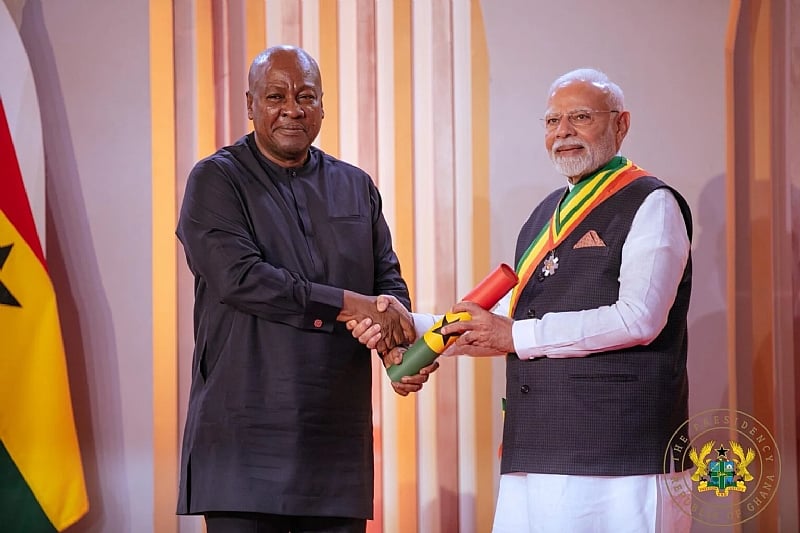Prime Minister Narendra Modi’s recent state visit to Ghana, the first by an Indian leader in three decades, has been hailed as a diplomatic triumph, marking a significant shift in India’s engagement with West Africa. The two-day visit resulted in ten comprehensive agreements spanning crucial sectors like trade, technology, health, and security, effectively elevating the bilateral relationship to a “Comprehensive Partnership,” signifying deeper strategic cooperation. This new level of engagement underscores India’s intent to strengthen its presence in Africa and Ghana’s ambition to become a regional leader in several key areas.
The centerpiece of the economic agreements is the commitment to double bilateral trade from $3 billion to $6 billion in the near future. This ambitious target signals a strong push for economic integration and mutual benefit. Coupled with this is the agreement to streamline trade regulations, ensuring smoother and more predictable trade flows between the two nations. This focus on trade facilitation will create a more conducive environment for businesses and contribute to the overall economic growth of both countries.
A major highlight of the visit was the agreement to establish Ghana as a vaccine manufacturing hub for Africa. Leveraging India’s prowess as a global pharmaceutical leader, this initiative aims to drastically reduce Africa’s reliance on vaccine imports, a critical vulnerability highlighted during the COVID-19 pandemic. Currently, Africa produces a mere 1% of its vaccine needs. This collaborative effort has the potential to revolutionize healthcare on the continent, boosting local production and ensuring greater access to essential vaccines. The establishment of a world-class Institute for Medicines at Ghana’s University of Health and Allied Sciences further underscores this commitment to bolstering healthcare infrastructure and research capabilities.
Beyond healthcare, the visit yielded significant agreements in other crucial sectors. A new defense cooperation pact will enhance military ties and strengthen regional security coordination. This will facilitate joint training exercises, intelligence sharing, and capacity building, contributing to a more stable and secure West Africa. In the realm of agriculture, the two nations have committed to enhancing cooperation, focusing on innovation and food security. This will involve sharing best practices, technology transfer, and joint research efforts to improve agricultural productivity and ensure food security in both countries.
Recognizing India’s dominance in the digital economy, where it accounts for half of global digital transactions, the two countries have agreed to collaborate on digital innovation. This partnership will support Ghana’s ambitious “One Million Coders Initiative,” promote fintech development, and bolster the national Innovation Hub. This focus on digital technology aligns with Ghana’s vision of becoming a regional technology leader and will empower its youth with valuable skills for the 21st-century economy. Furthermore, Ghana will benefit from India’s expertise in renewable energy through collaboration under the International Solar Alliance framework.
The scope of agreements extends beyond economic and technological spheres, encompassing cultural exchange and artistic collaborations. A new agreement will promote deeper cultural ties, fostering understanding and appreciation between the two nations while boosting their respective creative industries. This holistic approach to the partnership reflects a recognition that strong bilateral relations are built on a foundation of mutual respect and cultural exchange. Overall, Prime Minister Modi’s visit to Ghana signals a new era of strategic partnership, marked by ambitious goals and a shared vision for future growth and prosperity. The comprehensive nature of the agreements reached demonstrates a deep commitment to mutually beneficial cooperation across a wide range of sectors.


